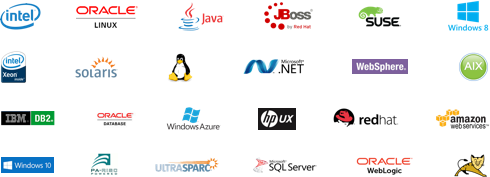Visual COBOL® for Visual Studio provides advanced COBOL editing and debugging for application developers. Continuous background compilation, auto complete, code analysis, and code search are just a few of the many developer tools available to streamline application delivery. Utilize REST and JSON to build new web services. Create new user interfaces using Win Forms or WPF. Combine COBOL with C#, VB, and other .NET languages—all within one IDE.
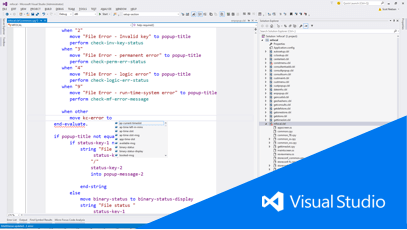
Visual COBOL for Eclipse provides advanced COBOL editing and debugging for application developers. Continuous background compilation code analysis, code search, and remote compile, and debugging are just a few of the many developer tools available to streamline application delivery. Utilize REST and JSON to build new web services. Create new user interfaces using HTML-5. Combine COBOL with Java and other Java Virtual Machine (JVM) languages—all within one IDE.
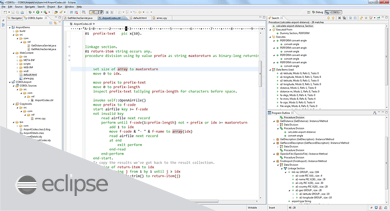
Compile your existing COBOL programs directly to Microsoft Intermediate Language (MSIL) and deploy to the Common Language Runtime (CLR). Combine COBOL with C#, VB, and other .NET languages on the desktop, on the web, or from mobile devices.
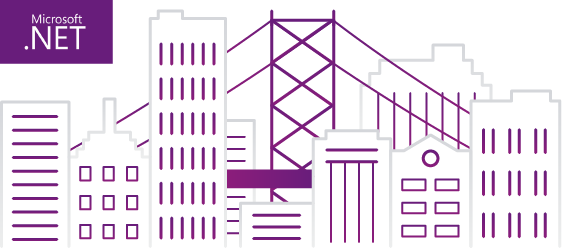
Compile your existing COBOL programs directly to Java Byte Code and deploy to the Java Virtual Machine (JVM) and Java Application Servers. Combine Java and COBOL on the desktop, on the web, or from mobile devices.

Deploy your existing COBOL programs to any on-premise, hosted, virtualized, or infrastructure as a service (IaaS) cloud environment, including Microsoft Azure and Amazon Web Services. Also, the latest release of Visual COBOL includes support for the Docker container platform, further increasing flexibility for application development and deployment. New product packaging options enable Docker deployment to both Windows Server and Linux platforms.
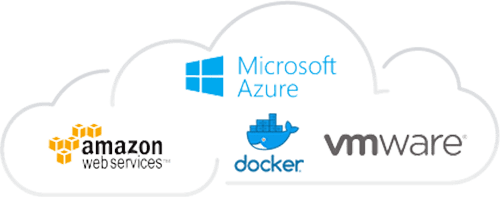
Deploy your existing COBOL applications to the latest Windows, UNIX, Linux, .NET, JVM, cloud, and web application server platforms including Windows 10, SUSE® Linux Enterprise, or IBM Websphere. Integrate COBOL applications with modern RDBMS systems including SQL Server, Oracle, and DB2 as well as open database platforms such as PostgreSQL.
